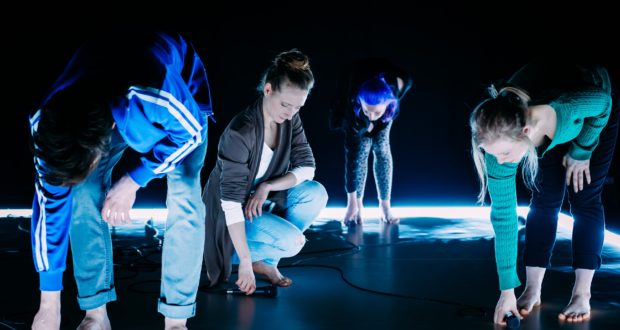Pros: All the stories used in this piece are authentic.
Cons: The presence on stage of more women than men might send the wrong message.
Summary
Rating
Excellent
A raw patchwork of verbatim confessions explores the abyss of alcoholism and the long route to recovery.
With their accounts intertwining and overlapping, they start by elaborating on the causes of their drift into alcoholism. The newcomer describes his alcoholic mother’s death when he was a teenager, as if his destiny was doomed from birth. Born in Palestine, the ten-year recoverer recalls her desire to integrate and embrace the lifestyle of her British neighbours.
The six-year sober blames the idealisation, as a child, of a TV character who looked ‘cool’ and always had a glass in her hand. “I want to be like her,” she thought then. They all agree in praising the propensity of alcohol to make them feel better about themselves, more interesting and more prone to socialising.
This raw patchwork of verbatim pronouncements reaches its darkest spot when the characters start listing the worst things they’ve done under the influence – from urinating from the top of the Scott Monument in Edinburgh, to nearly setting a house on fire in a clumsy attempt to dry some urine-soaked clothes inside the oven.
Then there are the blackouts, dreaded and cherished in equal measure. The blackouts helping them get over the ‘bad stuff’ they did, as they couldn’t remember much about it, but also made them more vulnerable, leaving them exposed to violence, sexual assault and their own outbursts of rage.
The route to recovery is a life-long process, but Mark Jeary’s partially autobiographical play proves that support is out there and that the willingness to stop drinking is all an individual needs to start the journey.
Author: Mark Jeary
Director: Paul Brotherson
Producer: New Room Theatre
Box Office: 0131 560 1581
Booking Link: https://tickets.edfringe.com/whats-on/blackout
Booking Until: 26th August 2018
 Everything Theatre Reviews, interviews and news for theatre lovers, London and beyond
Everything Theatre Reviews, interviews and news for theatre lovers, London and beyond



